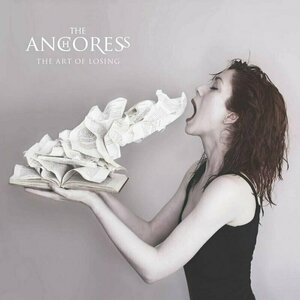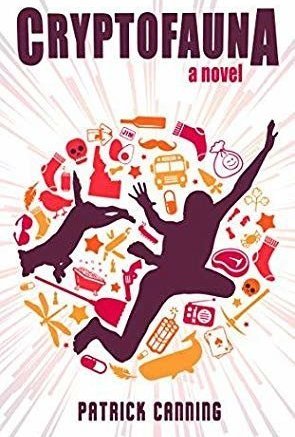
Tatra banka
Finance and Business
App
Ako prví na Slovensku vám predstavujeme bankovú aplikáciu prispôsobenú aj pre vaše Apple...

COLORCODE VJ
Photo & Video and Music
App
Suited for both hobby and professional use, COLORCODE VJ quickly turns your iPad into a VJ tool. At...

FieldMonitor
Photo & Video and Utilities
App
***Please read this entire description before purchasing, and contact me if you have any...

Sworkit: Workouts & Plans
Health & Fitness and Travel
App
No more gym, or weights, or excuses. Sworkit is the workout program for people who have felt too...

Piano Partner 2
Music
App
The Piano Partner 2 app provides a friendly, interactive way to help you learn and enjoy music with...
Ivana A. | Diary of Difference (1171 KP) rated Cryptofauna in Books
Aug 3, 2020
<a href="https://diaryofdifference.com/">Blog</a>; | <a href="https://www.facebook.com/diaryofdifference/">Facebook</a>; | <a href="https://twitter.com/DiaryDifference">Twitter</a>; | <a href="https://www.instagram.com/diaryofdifference/">Instagram</a>; | <a href="https://www.pinterest.co.uk/diaryofdifference/pins/">Pinterest</a>;
<img src="https://i0.wp.com/diaryofdifference.com/wp-content/uploads/2020/05/Book-Review-Banner-57.png?resize=768%2C432&ssl=1"/>;
Cryptofauna by Patrick Canning is definitely a read that will certainly stay in your memory, for how unique and random it is.
<b><i>Synopsis</i></b>
Jim is a janitor at an insane asylum and one day, he decides to commit a suicide at his workplace. But before he can do the deed, a mysterious resident at work equips him with a dog and a bag of ash, and throws him into a secret game known as Cryptofauna.
Cryptofauna is played by Operators, people with special abilities, who battle one another to influence important events around the world. To become an Operator, Jim must successfully pass a couple of exams, including surviving the Pacific Ocean, surviving some weird monks, and ultimately, passing the exam that proves his mind and soul are ready as well.
On top of this, there is his enemy as well, another Operator, who is forever his rival until the game ends.
This is how Cryptofauna works, in case you are curious. The image was sent to me by the author:
<img src="https://i2.wp.com/diaryofdifference.com/wp-content/uploads/2020/05/How-To-Play.jpg?resize=768%2C994&ssl=1"/>;
<b><i>My Thoughts:</i></b>
From the synopsis, I expected this book to be unique. However, I never expected to enter such a creative and random world. The events are all so random, the characters too. It is all very random and chaotic in a very interesting way. I am still struggling to decide whether I love this chaos or not.
This book is amazing in terms of creativity and world building.
The author is quite good at creating something new in a place where everything already exists. Patrick Canning managed to create a whole new reality within our real world. A place where Cryptofauna exists as a game and a way of life, and I was glad I entered that world.
There were times I felt very confused on what is happening. I had to re-read chapters and scenes, which resulted in average reading experience. I liked Jim as a character, and I loved how he slowly develops throughout the book and finds his true purpose in his life. As a person that was about to commit suicide, I felt he learned a valuable lesson to not give up. However I felt that the other characters had more liveliness in them (no pun intended, given the fact he wanted to kill himself). I actually loved the evil guy more. He had a recklessness about him that I found intriguing.
Overall, I did enjoy the creativity and the idea of the game itself. However, I felt very lost and confused at certain times, which made my experience less enjoyable. I still recommend it to you, if the synopsis intrigues you and you enjoy stories about good battling evil.
Thank you to the author, Patrick Canning, for sending me a copy of this book in exchange for an honest review.

FineScanner PDF Scanner + OCR
Business and Productivity
App
FineScanner turns your mobile device into a powerful all-purpose mobile scanner to quickly capture...

PDF Max 5 Premium - Fill forms, edit & annotate PDFs, sign documents
Business and Productivity
App
PDF Max Premium is a desktop class PDF app for reading, annotating or signing PDF documents on your...

The Art of Losing by The Anchoress
Album
AWARD-WINNING WELSH MULTI-INSTRUMENTALIST THE ANCHORESS RETURNS WITH HER CRITICALLY ACCLAIMED SECOND...

